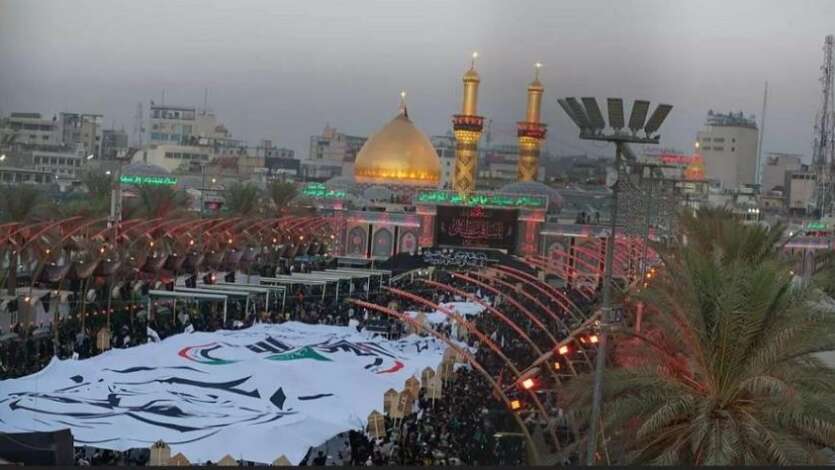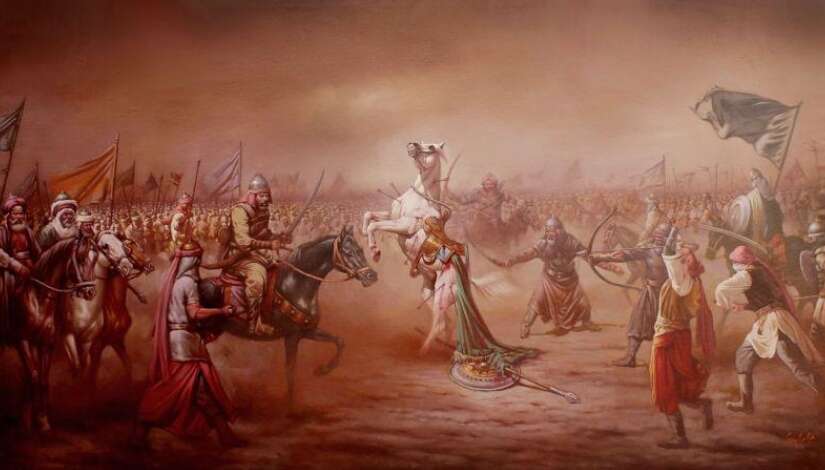Souls Sacrificed for Religion
By: Āyatullah Muḥammad Taqī Miṣbāḥ Yazdī
Translated by: Muhammad Reza Dorudgar & Zaid Alsalami
PART SIX
Secularism; the chronic enemy of Islam
What the Shah was purposely aiming at was to separate religion from politics. In today’s society, this is what we refer to as “secularism”, and there are some people in this country [I.R. Iran] who still pursue this. While there were people in the beginning of the Revolution who hid behind masks or spoke of secularism in private gatherings, in these recent years we can see them speak about it publicly and in the light of day. They do this under the pretence of “reform” and improvement, openly using secularist slogans and aggressively defend it as well.
Secularism and separation between religion and politics is precisely the same as what the Pahlavi regime were calling for, and exactly what Imām Khomeini adamantly opposed, with all his power. Secularism and separating religion from state means that social, economic, judicial and legal rulings of Islam must be set aside, and Muslims only engage with personal acts, like praying, fasting and weeping for Imām Ḥusain (a.s.).
Secularism means no penal-law, like qiṣāṣ, no ḥudūd or no capital punishment. In short, anything that is related to the social domain must be cancelled and put aside, even if it has been mentioned in the Quran. Secularism is basically saying these laws and practices that were a part of history no longer has its place in society, and must be left for history.
Nowadays, they explicitly say and write that when there is a clash between Islam and human rights, precedence is given to human rights, and Islam should be put aside. When we say this is in the Quran, like:
الزَّانِيَةُ وَالزَّانِي فَاجْلِدُوا كُلَّ وَاحِدٍ مِنْهُمَا مِائَةَ جَلْدَةٍ
As for the fornicatress and fornicator, strike each of them a hundred lashes.[1]
And:
 وَالسَّارِقُ وَالسَّارِقَةُ فَاقْطَعُوا أَيْدِيَهُمَا
وَالسَّارِقُ وَالسَّارِقَةُ فَاقْطَعُوا أَيْدِيَهُمَا
As for the thief, man or woman, cut off their hands.[2]
And:
وَلَكُمْ فِي الْقِصَاصِ حَيَاةٌ يَا أُولِي الألْبَابِ
There is life for you in retribution, O you who possess intellects.[3]
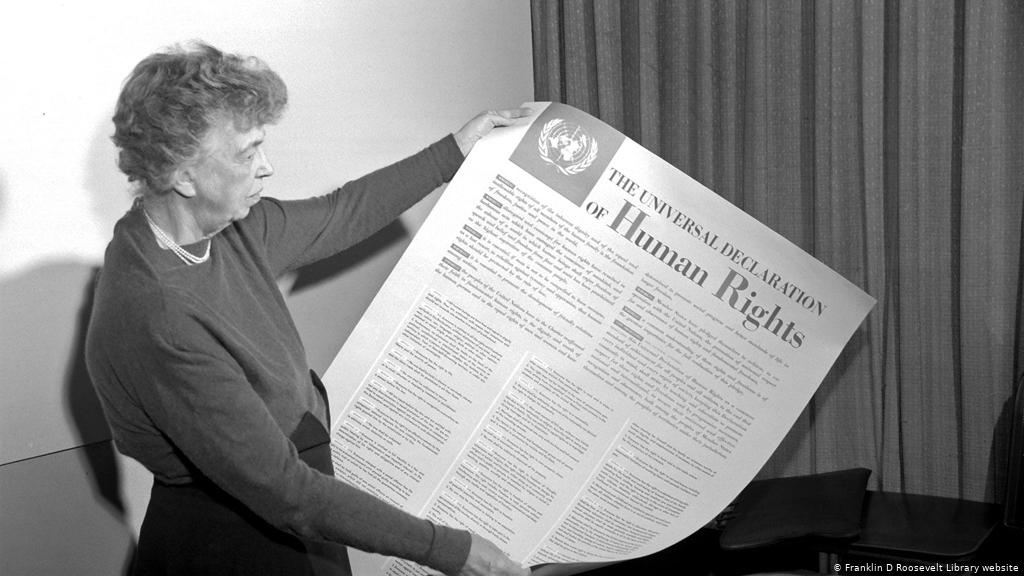
These people grin, and say these words are outdated and archaic. In society today, we have Universal Declaration of Human Rights, and these verses are against the Universal Declaration of Human Rights!
It is these things that those people cry out for and demand, under the pretence of “reformation”.
If Imām Khomeini was alive now, and saw these people who say these things under the guise of “reform”, what reaction would he have?
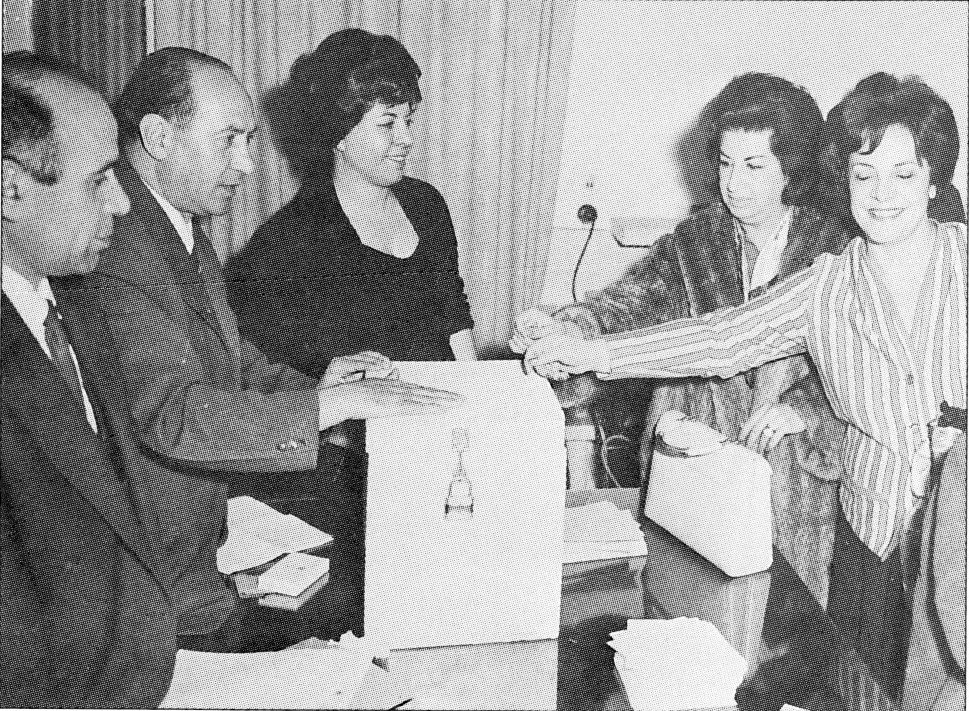
What the sinister Pahlavi regime introduced, along with the “Bill of Provincial and State Councils” and the “White Revolution”, which was a series of reforms in Iran launched by the Shah in 1963, were these all more dangerous, or the reforms of today’s so-called “reformers”? Sadly, some of these reforms have even been put into action. This matter needs serious contemplation, and our young generation in particular should have time for themselves and deeply think about this.
I swear by Almighty God, and I swear by the blood of the Master of martyrs (a.s.), what the reformers in our society today in Iran want to implement is worse and more dangerous than what the Shah was pursuing.

Many of the reformer leaders have neither any faith in Allah nor any genuine belief in Islam, the Quran and revelation. The essence, the spirit and the reality of secularism means there must be no Islam! If secularism does spread in this country and is implemented, it will not take long for you to no longer see any traces of true Islam in the country. There will only be a few people who will know about the reality of Islam and act according to it.
Secularism is the primary cause for the fading of religion and Islam. It is for this exact reason that thousands of books, journal papers, articles, magazines, newspapers and lectures discuss secularism, and glorify and praise it, along with criticising religion interfering in politics and social issues.
Some of these authors, speakers, sponsors and advocates of this theory currently hold important and sensitive positions in our government, and some of them had formerly held even more important positions. At this moment, books and papers from these advocators of secularism are being printed and published in large volumes, with the financial aid of governmental or non-governmental bodies. For one of many examples that can be given, you can look at Shargh (East) Newspaper,[4] and then judge whether its content is more dangerous and worse for Islam or what the Shah said.[5]
The real Ḥusainis of our time and all times must follow their leader and be ready to rise and defend Islam from whatever danger it faces, willing to sacrifice their lives for it. The advice the Prophet (ṣ.a.w.) is giving is not just directed at Imām ʿAlī (a.s.), but to all Muslims, especially the followers of Ahlul Bayt (a.s.) and the Ḥusainis. They should always have this saying in the mind and soul: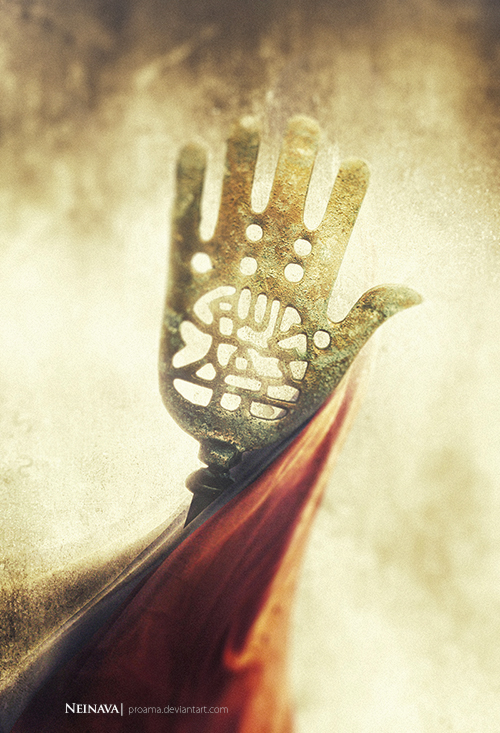
بَذلُکَ مالَکَ ودمَکَ دونَ دینِکَ
You sacrifice your property and your blood [life] for your religion.
A Christianised interpretation of the event of ʿĀshurāʾ
One of theories and viewpoints presented by some people regarding the event of ʿĀshurāʾ and Karbala is that this event was the will of Almighty Allah, and it was predestined that Imām Ḥusain (a.s.) be martyr in Karbala and bear those tragedies so that the lovers of Ahlul Bayt and Imām Ḥusain (a.s.) be forgiven and interceded.
According to this view, the event of Karbala was the Divine will and destiny Almighty Allah has predestined, and there is no dispute in Allah’s work:
لا يُسْأَلُ عَمَّا يَفْعَلُ وَهُمْ يُسْأَلُونَ
He is not questioned concerning what He does, but they are questioned.[6]
Based on this, it makes no sense for us to argue or question about Karbala, or discuss and analyse why Imām Ḥusain (a.s.) went to Karbala, why he sacrificed his life, how this movement preserved and saved Islam, and so on. Whatever we say about this subject merely is that the matter was Allah’s willing and Allah wanted so:
إنَّ اللهَ شآءَ أن یراکَ قتیلاً… وأن یَراهُنَّ سبایاً
It was God’s will to see you killed … and your family to become captives. [7]
The primary basis and wisdom behind this was that through loving Imām Ḥusain (a.s.) and mourning and weeping for him, Almighty God will bestow His blessings upon them and forgive them of their sins.
There is something similar to this in religious teachings of Christianity, and it could be that the origin of this theory about Karbala and Imām Ḥusain (a.s.) was adopted from that as well. Christians believe that a human is created naturally as a sinner and has natural sin. In order for this sin to be compensated and in order for someone to gain salvation and become eligible to enter Heaven and enjoy divine blessings, Almighty God offered a sacrifice for this. This sacrifice for natural sin of a human was that God sent his son (naʿūdhu billah), Jesus, for him to be crucified.
Therefore, according to Christianity, the philosophy of crucifying Jesus (a.s.) was that by doing this, humankind who are naturally born as sinners will be forgiven. The martyrdom of Jesus was predestined, planned and was part of scheme of creation, where basically without it, creation would not be ordered and humankind would not reach their existential objective. If humankind wanted to go to Heaven, there was no path other than this, forsaking natural sin by Jesus, the son of God, being crucified, and as a result human sin will be removed and can be worthy of entering Heaven.
This topic is one of the main pillars of today’s Christianity, and Christians strongly insist on it, believing it is among the fundamental foundations of their faith. This means that if someone does not agree to this belief, referred to as “salvation” they cannot be considered a Christian or a believer.
Our view is that such a belief is irrational and has no logical justification or explanation. Christians do say that these topics are beyond intellectual comprehension, and one should just have faith in it.
How can we conceptualise that Almighty God appears in the form of a spirit and incarnate in Lady Mary (a.s.), then appear in a physical form as Jesus (a.s.), born from Mary? Far be it.
Besides what the holy Quran has said on this issue, the origin of the story of Jesus being crucified is false, and someone else was crucified who people thought was Jesus. Almighty God saved him from his enemies, and ascended him up to the heavens. The Quran says:
وَقَوْلِهِمْ إِنَّا قَتَلْنَا الْمَسِيحَ عِيسَى ابْنَ مَرْيَمَ رَسُولَ اللَّهِ وَمَا قَتَلُوهُ وَمَا صَلَبُوهُ وَلَكِنْ شُبِّهَ لَهُمْ وَإِنَّ الَّذِينَ اخْتَلَفُوا فِيهِ لَفِي شَكٍّ مِنْهُ مَا لَهُمْ بِهِ مِنْ عِلْمٍ إِلا اتِّبَاعَ الظَّنِّ وَمَا قَتَلُوهُ يَقِينًا* بَلْ رَفَعَهُ اللَّهُ إِلَيْهِ وَكَانَ اللَّهُ عَزِيزًا حَكِيمًا
And for their saying, ‘we killed the Messiah, Jesus son of Mary, the apostle of Allah’ –through they did not kill him nor did they crucify him, but so it as made to appear to them. Indeed those who differ concerning him are surely in doubt about him: they do not have any knowledge of that beyond following conjectures, and certainly they did not kill him. Rather Allah raised him up toward Himself, and Allah is all-might, all-wise.[8]
As mentioned, this viewpoint regarding Imām Ḥusain (a.s.) is similar to what the Christians say about Jesus, where Imām Ḥusain (a.s.) going to Karbala and being killed was a personal and special obligation for the Imām (a.s.), and through this blessed sacrifice people will gain salvation and go to Heaven.
Critiquing this Christianised theory about ʿĀshurāʾ
Considering the explanation that has so far been presented about Karbala and the movement of Imām Ḥusain (a.s.), it is clear that this viewpoint is invalid and such a belief is rejected and unacceptable.
Yes, as the Quran says, Almighty God does not need to explain His acts to anyone, and it is people who are responsible to explain their acts to God.
لا يُسْأَلُ عَمَّا يَفْعَلُ وَهُمْ يُسْأَلُونَ
He is not questioned concerning what He does, but they are questioned.[9]
However, we must note that Almighty God is All-wise, and what He does is never without wisdom:
وَهُوَ الْعَزِيزُ الْحَكِيمُ
And He is the All-mighty, the All-wise. [10]
What does some people sinning and someone else being sacrificed for their sin for them to be forgiven have to do each other?
Is this compatible with the “wisdom” and “justice” of Almighty God? As mentioned, it appears that this view has been adopted and borrowed from other religions.
It has already been explained that the movement of Imām Ḥusain (a.s.) was not something personalised or exclusive to him. Whatever he did was based on his sharʿī duty and responsibility, and if such a thing was to happen in any other time or place, the duty would still be there. In principle, exclusive and personalised rulings in Islam are only applicable to the Messenger of God (ṣ.a.w.), and there is no personalised ruling related to anyone else. Of course, these personal rulings are known and have been mentioned in books of jurisprudence as well, but other than them, there is no such thing as personal rulings for any other individual. It was only allocated for the holy Prophet (ṣ.a.w.).
One of these personal rulings was that supererogatory night prayers were obligatory for the Prophet (ṣ.a.w.), whereas it is recommended for all other Muslims. Another ruling is having multiple wives, more than four permanent wives, while all other Muslims, even the Imāms (a.s.) could not have more than four wives at one time. A third ruling was that outside of the common ways of maḥramiyya, a woman can bestow herself to the Prophet (ṣ.a.w.) and in this way she can become his wife. The Quran says:

وَامْرَأَةً مُؤْمِنَةً إِنْ وَهَبَتْ نَفْسَهَا لِلنَّبِيِّ إِنْ أَرَادَ النَّبِيُّ أَنْ يَسْتَنْكِحَهَا خَالِصَةً لَكَ مِنْ دُونِ الْمُؤْمِنِينَ
And a faithful woman if she offer herself to the Prophet and the Prophet desires to take her in marriage, (a privilege exclusively for you, not for [the rest of] the faithful.[11]
A fourth personal ruling exclusive to the Prophet (ṣ.a.w.) is that if needed he must fight with the disbelievers, even if he is all alone and there is no one else to accompany him:
فَقَاتِلْ فِي سَبِيلِ اللَّهِ لا تُكَلَّفُ إِلا نَفْسَكَ وَحَرِّضِ الْمُؤْمِنِينَ
So fight in the way of Allah: you are responsible only for yourself, but urge on the faithful [to fight].[12]
But for the rest of Muslims, the duty to fight against the disbelievers when needed is only when their number is at least half of number of the disbelievers’ army. For example, if the number of the disbelievers’ army is two hundred soldiers, the number of Muslims’ army must at least be one hundred soldiers, and if less, it will not be obligatory for them to engage in jihād. What the Muslims would need to do in this case is temporarily compromise and agree with some kind of peace treaty or agreement, until circumstances change.
Of course, in the beginning of Islam, this proportion was one against ten, and even though the number of disbelievers were ten times that of Muslims, it was still obligatory for the Muslims to engage in jihād. The Quran says:
يَا أَيُّهَا النَّبِيُّ حَرِّضِ الْمُؤْمِنِينَ عَلَى الْقِتَالِ إِنْ يَكُنْ مِنْكُمْ عِشْرُونَ صَابِرُونَ يَغْلِبُوا مِائَتَيْنِ وَإِنْ يَكُنْ مِنْكُمْ مِائَةٌ يَغْلِبُوا أَلْفًا مِنَ الَّذِينَ كَفَرُوا بِأَنَّهُمْ قَوْمٌ لا يَفْقَهُونَ
O Prophet Urge on the faithful to fight: If there be twenty patient men among you, they shall overcome two hundred; and if there be hundred of you, they shall overcome a thousand.[13]
However, after this, the ruling was changed, and the obligation of jihād reduced the proportion to half:
الآنَ خَفَّفَ اللَّهُ عَنْكُمْ وَعَلِمَ أَنَّ فِيكُمْ ضَعْفًا فَإِنْ يَكُنْ مِنْكُمْ مِائَةٌ صَابِرَةٌ يَغْلِبُوا مِائَتَيْنِ وَإِنْ يَكُنْ مِنْكُمْ أَلْفٌ يَغْلِبُوا أَلْفَيْنِ بِإِذْنِ اللَّهِ وَاللَّهُ مَعَ الصَّابِرِينَ
Now Allah has lightened your burden, knowing that there is weakness in you. So if there be a hundred patient men among you, they shall overcome two hundred, and if there be a thousand, they shall overcome two thousand, by Allah’s leave; and Allah is with the patient. [14]
Other than these exclusive rulings allocated only for the Prophet (ṣ.a.w.), we do not have such a case for anyone else, even for Imām ʿAlī (a.s.), Imām Ḥasan (a.s.), Imām Ḥusain (a.s.), or the rest of the Imāms (a.s.). Yes, it could be possible that in some conditions one particular ruling in a certain time does not have more than one case, but this is not inconsistent with totality and generality of rulings. A ruling is absolute, general and for all people, and if in the same time another case was found, its ruling would be the same, but at that moment it might not have found more than one application. If circumstances arise again for that ruling to be applied again, then it will.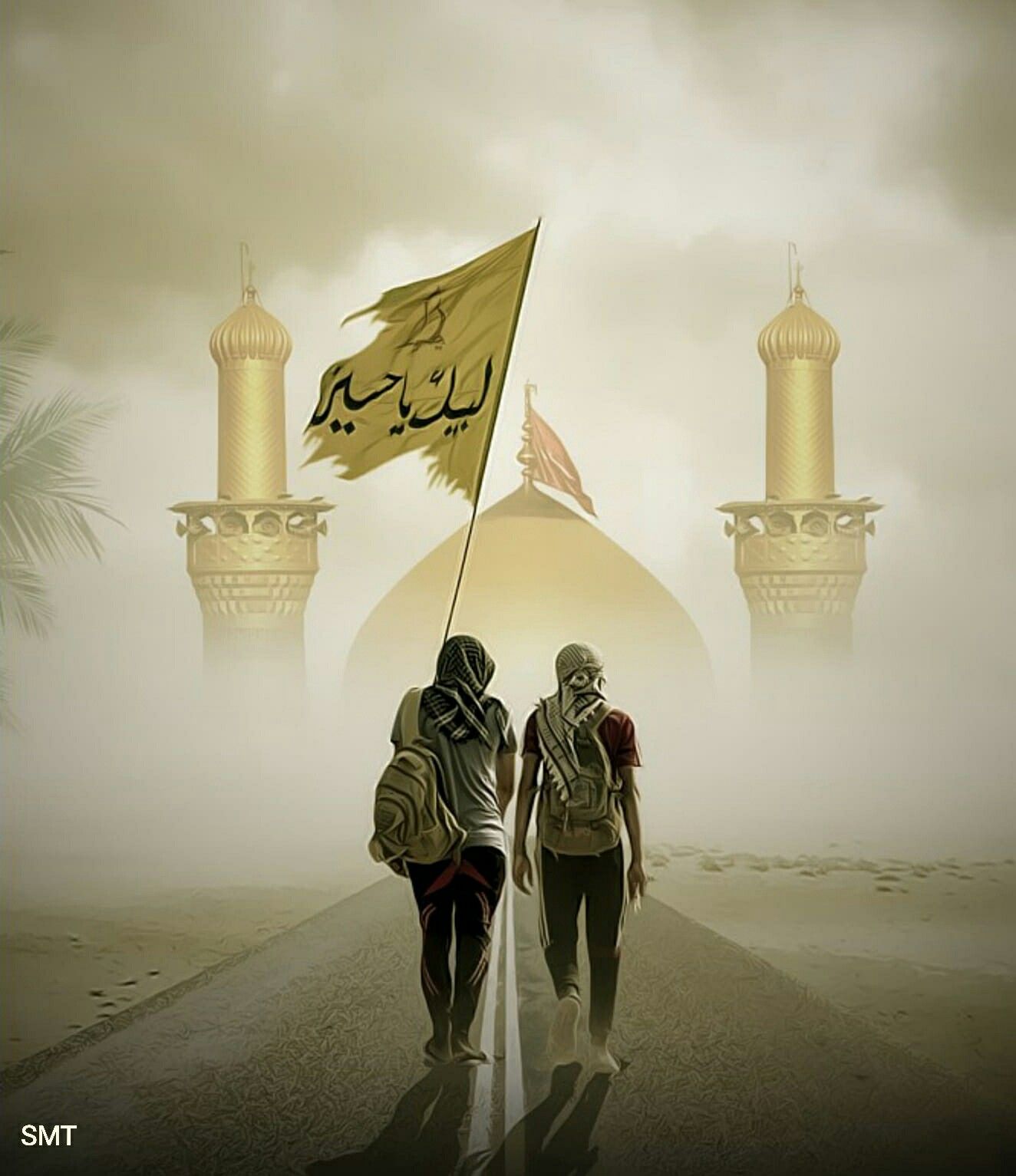
For example, if the circumstances and conditions surrounding Imām Ḥusain (a.s.) would have occurred for Imām al-Riḍā (a.s.) or Imām al-ʿAskarī (a.s.), their obligation would have been exactly the same as what Imām Ḥusain (a.s.) did. The reason that we see the rest of Imāms (a.s.) have not done such a thing was that their circumstances and conditions were different, and the subject-matter of the ruling was not applicable for them. In jurisprudence, this is referred to as “the ruling is dependent on the subject-matter and its restrictions”. This means that firstly, the subject-matter of the ruling with all its restrictions (quyūd) and conditions must first be ascertained in order for the ruling to appear, and without ascertaining the subject-matter and its related restrictions, there would be no ruling.
To sum this up, there are two issues we must consider here: The first is that we do not have personal special rulings, except those related to the Prophet (ṣ.a.w.). The second is that Almighty God never does something out of vanity, and for everything He does, whether takwīnī or Tashrīʿī, there is wisdom behind it. Sometimes we know about the wisdom behind it, and sometimes we do not know the reason or wisdom behind it. What we do know is that although we might not be aware of the reason, but Almghty God will always have a reason and wisdom when doing something.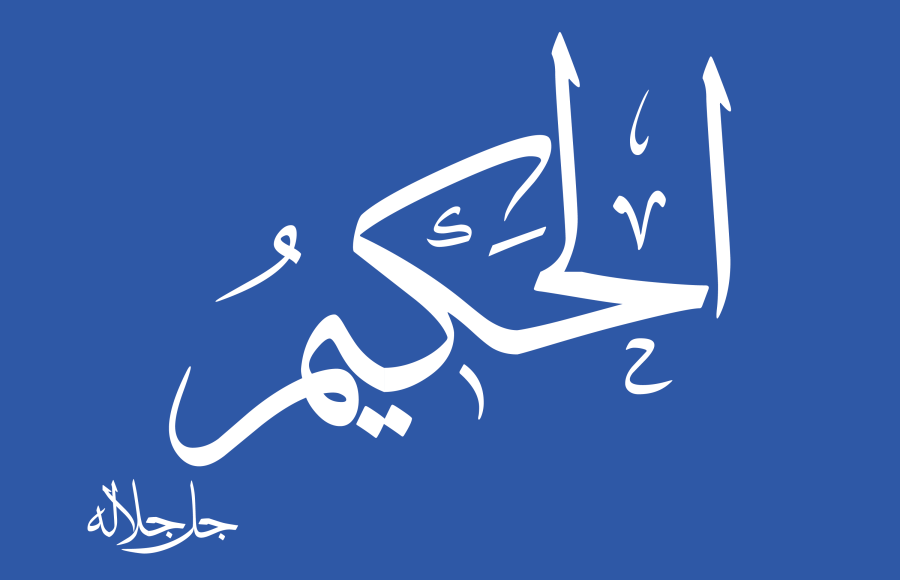
The result of these two issues is that the duty in which one of its applications was in reference to what Imām Ḥusain (a.s.) was involved in is an absolute and general command that definitely has a reason and Almighty Allah has appointed such duty based on that wisdom and reason. This ruling is dependent on the subject-matter, with the special circumstances that whenever and for whoever that subject-matter occurs, with all its conditions, the ruling will also be applicable to them, and they must do exactly what Imām Ḥusain (a.s.) did.
What exactly is the subject-matter here, and the special restrictions, this is another topic and detailed discussion that we do not intend to do it. In all, the absolute and most complete application of this subject-matter occurred for Imām Ḥusain (a.s.).
The view that the basis of the event of ʿĀshurāʾ was that Almighty God had predestined that Imām Ḥusain (a.s.) be killed to redeem the sins of others and the cause for their salvation to enter Heaven is indeed an undeveloped and invalid view. Such an understanding comes from Satanic influences, and the same way Christians have been negatively influenced and misled to adopt such an idea, Satan is also is trying to mislead Muslims to pursue these kinds of thoughts as well.
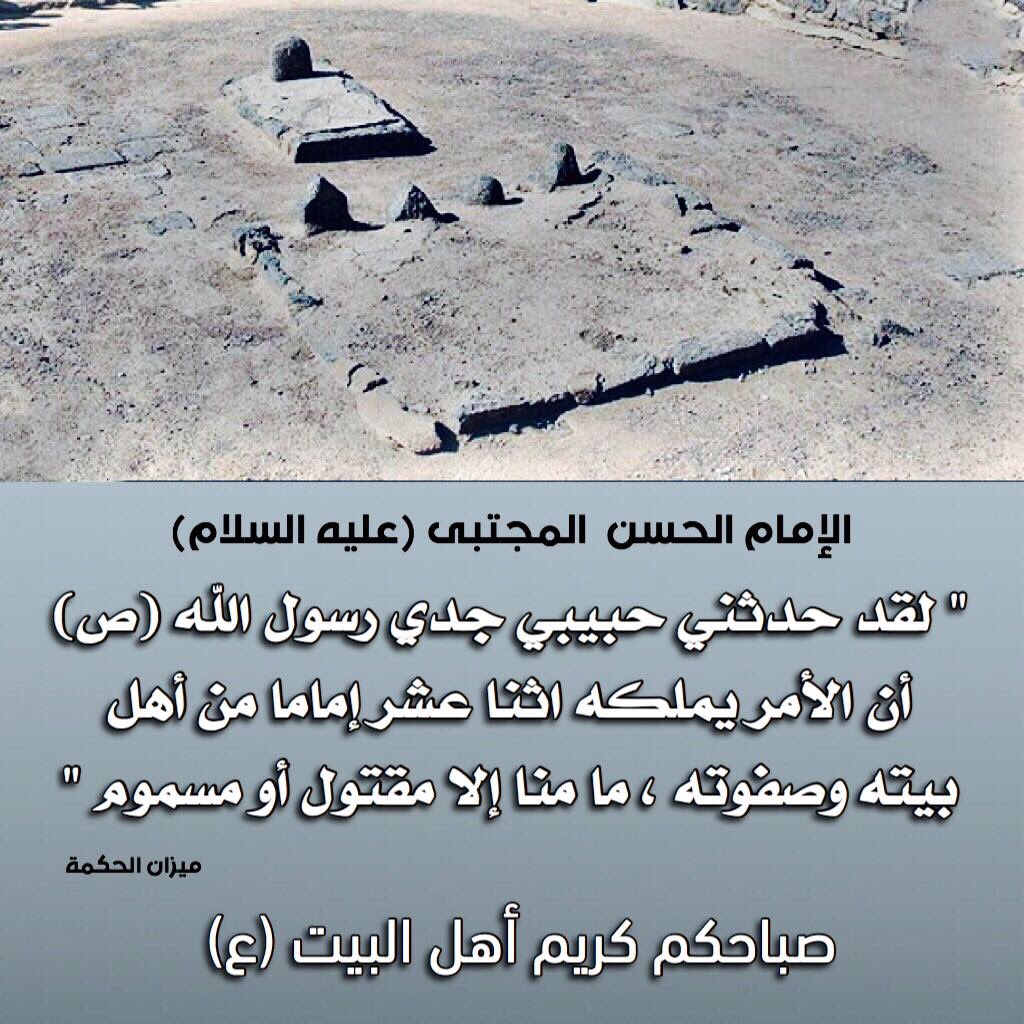
As explained in detail, the primary motive for Imām Ḥusain’s revolution and his martyrdom was to preserve religion. Imām Ḥusain (a.s.) sacrificed his life so others can be guided and Islam can be protected and continue to exist. The remaining Infallible Imāms (a.s.) also sacrificed their lives in this path; as they said:
مَا مِنَّا إِلاَّ مَقْتُولٌ أَوْ مَسْمُومٌ
All of us would be killed of poisoned.
All these efforts, sacrifices, suffering of calamities and hardships were all for the sake of religion and to preserve the true Islam and Islamic values in the society.
Cont….
[1] Quran, 24: 2.
[2] Quran, 5: 38.
[3] Quran, 2: 179.
[4] Shargh Newspaper was a daily newspaper founded in 2003, during the era of Seyid Muhammad Khatami’s presidency. It was the most popular reformists newspaper in Iran, and very controversial, banned a few times as well. [Tr.]
[5] Numerous examples are subtly or explicitly given that question or object Islamic law, and that Iran needs to gradually change and become like Europe. See: Jānhā fidāye Dīn, p. 63.
[6] Quran, 21:23
[7] Biḥār al-Anwār, vol. 44, p. 364, h. 2
[8] Quran, 4:157-158
[9] Quran, 21:23
[10] Quran, 16:60
[11] Quran, 33: 50.
[12] Quran, 4: 84.
[13] Quran, 8: 65.
[14] Quran, 8: 66.
![]()

